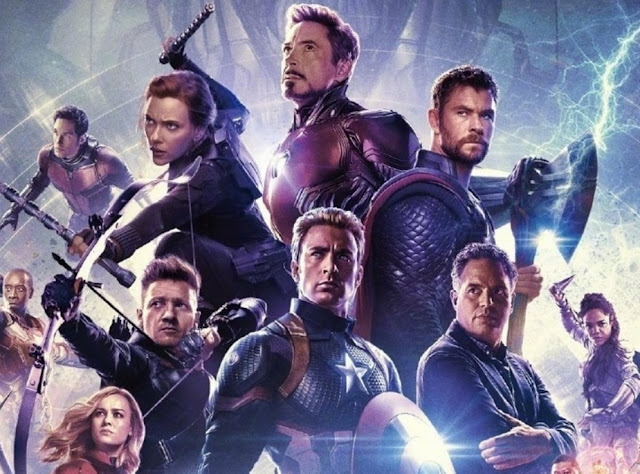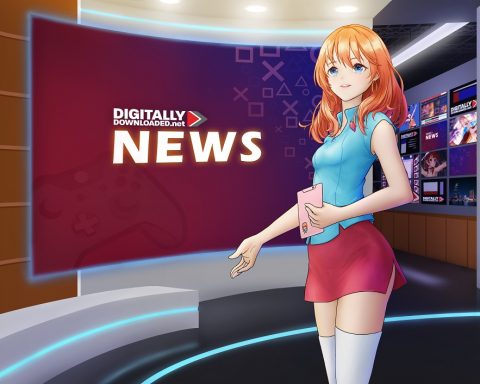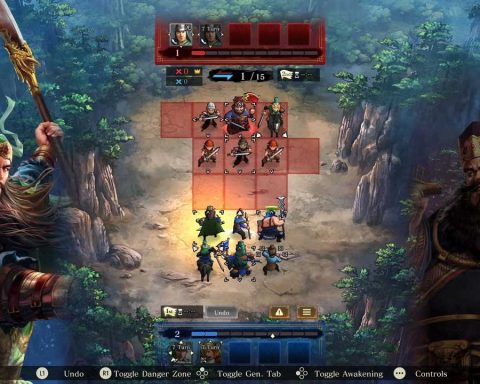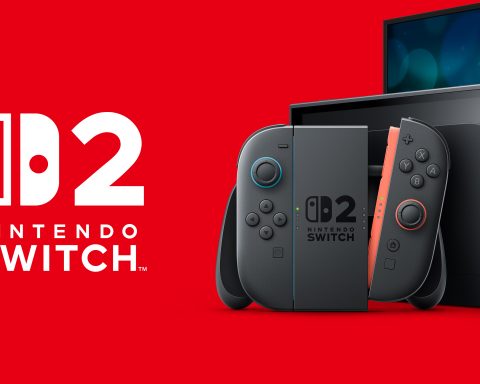Opinion by Matt S.
You may have heard that a new Avengers movie was recently released. It’s apparently breaking all kinds of box office records and making Disney plenty of money, and based on the reviews and coverage of the movie, overall people are pretty positive on it. So, that’s a good thing and a win-win for everyone with a stake in the movie, be that fan or Disney accountant.
One other thing that’s happened is less pleasant: people have become very, very aggressive on spoilers in that film. There was a Twitter hashtag “#DontSpoilTheEndGame” and the directors went as far as to publish an open letter, including the line: “Because so many of you have invested your time, your hearts, and your souls into these stories, we’re once again asking for your help.”
“When you see ‘Endgame’ in the coming weeks, please don’t spoil it for others, the same way you wouldn’t want it spoiled for you. Remember, Thanos still demands your silence.”
If you dared to break the dictated “pact” on spoilers for Endgame, you could be in for a world of hurt. Literally. A dude got beaten up for loudly announcing plot moments at the cinema.
Spoilers: Nasty move, or crucial to analysis?
On the one hand, it’s reasonable enough to ask that people don’t take particular joy in spoiling movies. Where a film is built around a major twist, to deliberately ruin that for someone is to take away from them the ability to feel the impact of the twist themselves – it’s to deny them the artistry of the film. For example: The Sixth Sense has a sharply different tone the first time you see it, in comparison to the second time that you see it and once you know what the twist is. To deny an audience that ability to contrast “readings” on the film from first, to second watch, is really not what a decent person would do.
Similarly, if you’re in a conversation with someone and they specifically ask you not to tell them something about a book, film, game, or whatever else, then it’s pretty nasty to ignore their request. I remember once taping a sporting grand final, only to have the results ruined for me after I specifically asked someone not to tell me the score. I didn’t talk to them for quite some time after that. It’s hard not to get really angry at someone that would deliberately ignore your completely reasonable request like that.
However, not every plot point is a “spoiler.” Furthermore, people who see movies or play games often want to talk about them with one another, and they should be able to do that too. I’m a big fan of Game of Thrones, but because I don’t subscribe to Foxtel here in Australia (the only legal way to watch the show “on release”) I need to wait for the iTunes release a couple of months down the track. What I’m not doing is getting on my high horse on Twitter and screaming down anyone talking about the show. Discussion is core to art, and if I’m not willing to mute hashtags, or just avoid Twitter entirely around the time of each episode premiering, then I need to accept that I might see a “spoiler”.
But putting all of that aside, because it’s a digression from my general line of argument: The real concern I have around the increasingly aggressive stance that people take towards spoilers is that not every plot point is particularly good or interesting, either, and the worrying thing is that the marketing and sales teams at companies like Disney have cottoned on to that fact. They’ve realised that all they need to do is whip people into a frenzy of anger around “spoilers” and they’re all but guaranteed that if their movie is going to get any criticism for its narrative and plot points, that’s going to come well and truly after everyone’s already seen it and they already have their money.
I don’t get to join in with many pre-release film screenings, so I’m not sure just how extreme “spoiler” conditions that journalists in that field are subjected to (though directors publishing open letters demanding people don’t spoil their films clues me in there), but over the years in reviewing games I have seen a steady shift in publisher attitude – particularly for big blockbuster games. Ten years ago, if there was a “spoiler” restriction, it was for some major plot twist well down towards the end of the narrative.
Now, if you’re going to get early access to that game to do your review, you’re going to have to guarantee that you’ll only talk about narrative in the most broad sense possible, from almost the opening act. Most of the time the spoilers are restrictive enough (“don’t mention XXX character, YYY event, or ZZZ location”) to ensure that, outside of the opening hour or two, the grand sum of what we’re allowed to say about a game’s narrative is “the narrative is good”, “the narrative has surprises”, or “I didn’t like the story much.” These overly-generalised statements can be easily dismissed because they lack substantiation, and the publishers know that. That’s deliberate. They also know that an inability to go in-depth with a narrative forces the journalists to focus on the superficial elements – the entertainment value of the button pressing, or how impressive the 4K resolution is. This, too, is deliberate. It’s weaponising the spoiler against criticism.
What if Romeo and Juliet were Avengers?
To give you a sense of what I mean, this is what a review of Shakespeare’s play, Romeo and Juliet, might look like, were we given a standard set of embargo notes that would prevent us from divulging information beyond the first act:
“Romeo and Juliet is a play about two youths from two important families… families that just happen to hate one another. Romeo’s a bit of a playboy and likes the ladies, while Juliet’s a little naive but quite the beauty, and men from all over are asking her father for her hand in marriage.
“Romeo manages to sneak into a party, where he and Juliet fall in love at first sight, before Romeo needs to high-tail it out of the party once some of Juliet’s relatives realise who he is. Now, I can’t give away much more of the plot, but I assure you, it’s both romantic and tragic, and filled with shocking twists and turns. Shakespeare really knows his tragedies – look at Hamlet as an example – but this one really shook me and left me on the verge of tears.”
(Note to people who do know Romeo and Juliet: Naturally Shakespeare himself wouldn’t have been able to write the introductory chorus of Romeo and Juliet, which gives away the entire plot in the opening scene, so the above “review” assumes that that chorus doesn’t exist. That “spoilers” are inhibiting artists from creative ideas is a whole other topic for another day).
In addition to being a completely shallow summary of the opening act, this mock review doesn’t add anything to the discussion about the narrative of Romeo and Juliet. Because it can’t. To talk about the plot of any text in proper depth, you need to look at the entire text, because the themes don’t just pop up for one scene, act, or one line of dialogue. They’re explored throughout the text. If we can’t look at the role of Tybalt as the antagonist through the course of the entire play, then we can’t look at him properly at all. If we can’t examine the ramifications of Mercutio’s death on the relationship between Romeo and Juliet, and their broader families, then we can’t properly study the way that the play functions as a tragedy at all. We can state that it is a tragedy, but we can’t talk about why.
Everything I’ve described above simple, normal plot points that are impossible to avoid talking about in the context of a proper analysis of Romeo and Juliet. But, were Romeo and Juliet a Marvel film, each plot point above would be classed as a “spoiler,” and critics would be forced to either raise the ire of the audience by writing about them (and be subsequently blacklisted by Marvel and potentially beaten up by some thug), or revert to a shallow, inadequate analysis – an analysis that Marvel would take as free publicity, but one that fails to add to the overall conversation about the artistry of Romeo and Juliet.
The difference between plot points and spoilers
Part of the issue, I feel, is that the idea of what a “spoiler” is has expanded in recent years, and quite rapidly. Once upon a time, “spoilers” were the major plot twist, in stories that relied on a singular, potent plot twist for emotional impact. The spoiler was who the real killer was in an Agatha Christie book. Or that moment that revealed what was actually going on in The Sixth Sense, right at the end. In games, a spoiler was Aerith’s death in Final Fantasy VII.
Either writers of popular entertainment have become increasingly lazy, relying on cheap “shocks” to create a facade of emotional impact by relying on more twists than an Agatha Christie story (and that is actually a reasonable observation), or the definition of “spoiler” has now expanded to encompass an increasingly broad range of events within a game. Cecil becoming a paladin and rejecting his dark knight status is no longer a critical philosophical element in Final Fantasy IV. It’s a spoiler. Mario’s nipples, as he runs around shirtless, is now a spoiler. The opening splash screen, before you select “New Game,” is a spoiler. I’ve been shouted down for sharing screenshots from the opening chapter of Danganronpa games for “spoilers,” when, firstly, the screenshots simply reveal lines of mundane dialogue, and secondly, come from the opening chapter, which even the publisher was cool with media “spoiling.” We really are close to the point where everything is treated like a possible spoiler, and there is a point where treading on eggshells just becomes exhausting, and completely drains you of any interest in engaging with the text at all.
Which is, of course, exactly what the “fans” and publishers want. If you’re exhausted or cowed into submission, you’re not going to be critical. If you’re not going deep, you’re giving them superficial validation. If you’re not able to do your job as a critic, then you’re doing their jobs, as marketers and consumers, respectively.
The problem is that by definition, locking discussion away because to talk about it would be a “spoiler” is to limit conversation of that art work. It’s like saying you can’t talk about the Mona Lisa’s hair, or the melting clock in the Dali. You might be able to talk around these things in vague terms, but you’re missing the whole picture. It’s important that we shift the definition of what a spoiler is back to it being a major disruptive twist that substantially pivots the direction of the narrative going forwards. We simply can’t discuss art properly as long as the spoiler continues to be defined as another moment along the linear plotline.
To put all of this another way – as critics, what’s the point of playing beyond the introduction, or watching more of a film than the trailer, if we’re not able to talk about it beyond that anyway? If we can only discuss art in the most general terms, for fear of “spoiling” something, then we’re not actually providing criticism and analysis. We’re providing a marketing resource to the producers. Once again, it’s fine to expect us to be responsible about this and not ruin major twists and genuine, bona fide spoilers, but no, this effort to redefine what a “spoiler” is is not helping anyone but the money-makers and rampant, unthinking consumerism.
– Matt S.
Editor-in-Chief
Find me on Twitter: @digitallydownld
Please help keep DDNet running: Running an online publication isn’t cheap, and it’s highly time consuming. Please help me keep the site running and providing interviews, reviews, and features like this by supporting me on Patreon. Even $1/ month would be a hugely appreciated vote of confidence in the kind of work we’re doing. Please click here to be taken to my Patreon, and thank you for reading and your support!







